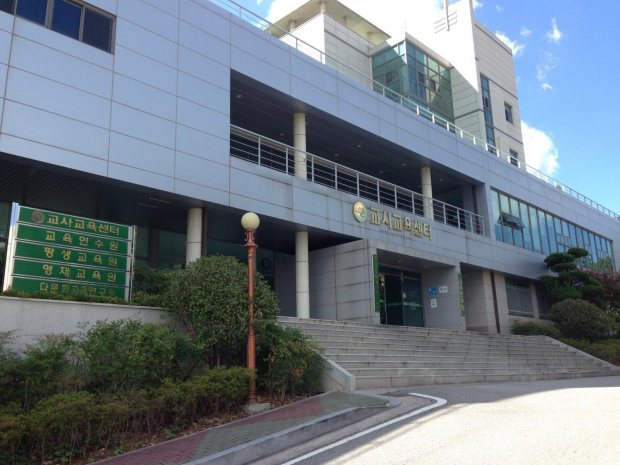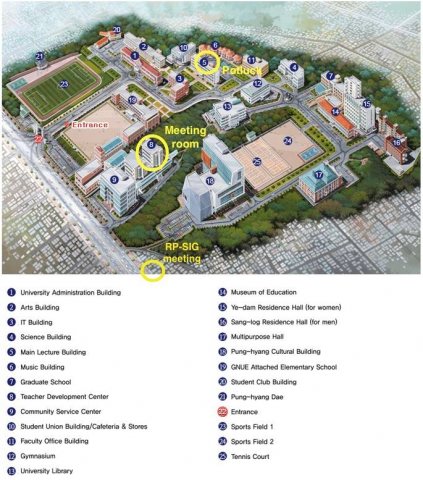
Gwangju-Jeonnam Chapter February Meeting
.
––– MAIN MEETING SCHEDULE –––
Time: 2nd Saturday, February 10, 2018, 1:45 - 5:00 pm
Location: Gwangju National University of Education (GNUE), Teacher Training Center (교사교육센터) 1st Floor; Room 811. Detailed directions HERE.
1:45 pm: Sign-in and Meet-and-Greet (Admission: Free for newcomers. Membership welcomed.)
2:00 - 2:50 pm: Presentation 1
ㅡ No-Prep Activities: How to Do Less While Your Students Produce More!
ㅡ Maria Lisak (Chosun University, Gwangju)
2:50 - 3:15 pm: Refreshment Break
3:15 - 4:05 pm: Presentation 2
ㅡ From Reading to Thinking: Teaching Reading Comprehension
ㅡ Jessica Magnusson (Gwangju Natl. University of Education)
4:15 - 4:45 pm: Swap-Shop Presentations
Share your Teaching Ideas, Classroom Activities, and Teaching Wisdom with the group.
(Everyone is encouraged to share [up to 5-6 min. each]. Short tidbits are welcomed. Handouts also welcomed.)
4:45 - 5:00 pm: Announcements / Drawing for Door Prizes / Closing

Presentation Summary and Presenter Biodata
.
No-Prep Activities: How to Do Less While Your Students Produce More!
By Maria Lisak
While many people think that teaching English as a foreign, other, or second language is like the scene from Stripes (singing "Da Do Run Run"), classroom teachers know that there is a lot that goes into a class: the preparation, the material making, the scaffolding strategies, the follow up, the feedback, the grading, the reports, and all the administration that schools and bureaucrats need to fulfill legal obligations or get funding. A recurrent reflective practice question in our community of teachers has been: How can I do less while my students do more? This workshop is a chance for us to share some no-prep activities with each other to build our repertoire of instant teaching solutions. The facilitator will be sharing some tips and tricks to help you elicit student production while reducing prep and follow up
The Presenter

Maria Lisak is celebrating her 22nd anniversary of her first steps in South Korea this month. From the Midwest in the US, her Chicago accent still plagues her Korean pronunciation. In answering the question that a Korean colleague asked her last semester, she is still here because she can live a simple life while pursuing her love of learning in a community that values education. She has been teaching public administration and social welfare at Chosun University since 2012. You can check out her degree pedigree on her blog: koreamaria.typepad.com/gwangju
----------
From Reading to Thinking: Teaching Reading Comprehension
By Jessica Magnusson
Reading materials (stories, articles, advertisements, etc.) can be wonderful materials for language teaching and language learning. Reading gives students exposure to a wide range of vocabulary and grammar within a context. Reading in a foreign language can not only improve students’ language proficiency, it can also expand their knowledge of our world. Reading can be the starting point of many thoughtful conversations.
However, many students of a foreign language struggle with reading comprehension. Some students are resistant to reading in a foreign language and prefer grammar or vocabulary exercises. Some students are able to read the sounds but not able to fully or even partially comprehend what they are reading. It is interesting to note what many Korean students think of when they think of reading in English. Many think of reading in English as hard work and not at all enjoyable. Many students think of test-prep passages, which are usually void of images and are read alone.
Teachers often wonder how to best teach reading comprehension or even whether or not it can be taught. Isn’t reading and comprehension something that students should just do by themselves? This presentation will examine the shared reading experience, allowing reading and comprehension to be a bridge to conversation.
This presentation will examine ways to know whether or not, or how much of a reading passage students have comprehended. Examples using different reading passages for various groups and backgrounds of students (age, language proficiency, student interests, etc.) will be given. Some reading comprehension activities, such as picturing, retelling, and expressing opinions will be covered.
The Presenter

Jessica Magnusson has taught English conversation, teacher training, and special programs at Gwangju National University of Education (GNUE) since 2011. She earned an MA in TESOL from the School for International Training (SIT) in Brattleboro, Vermont (USA). She is interested in teaching vocabulary and reading comprehension to all ages of learners. In her free time, she enjoys reading and going for walks.
___________________________
Photo: The Gwangju National University of Education (GNUE / 광주교육대학교), Teacher Training Center (교사교육센터), venue for our main meeting ㅡ 1st floor, Room 811.




